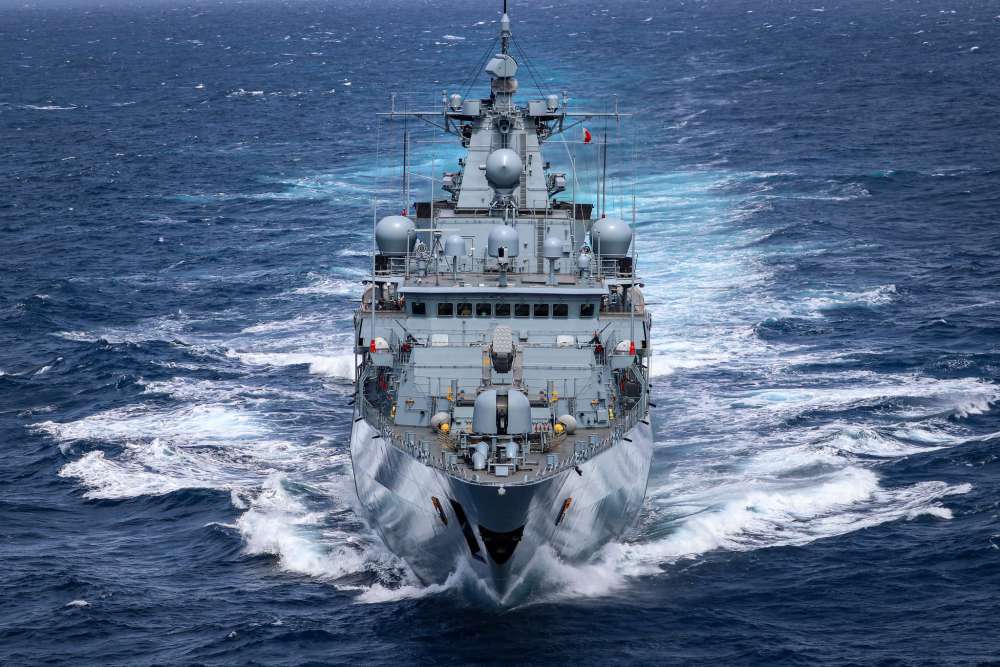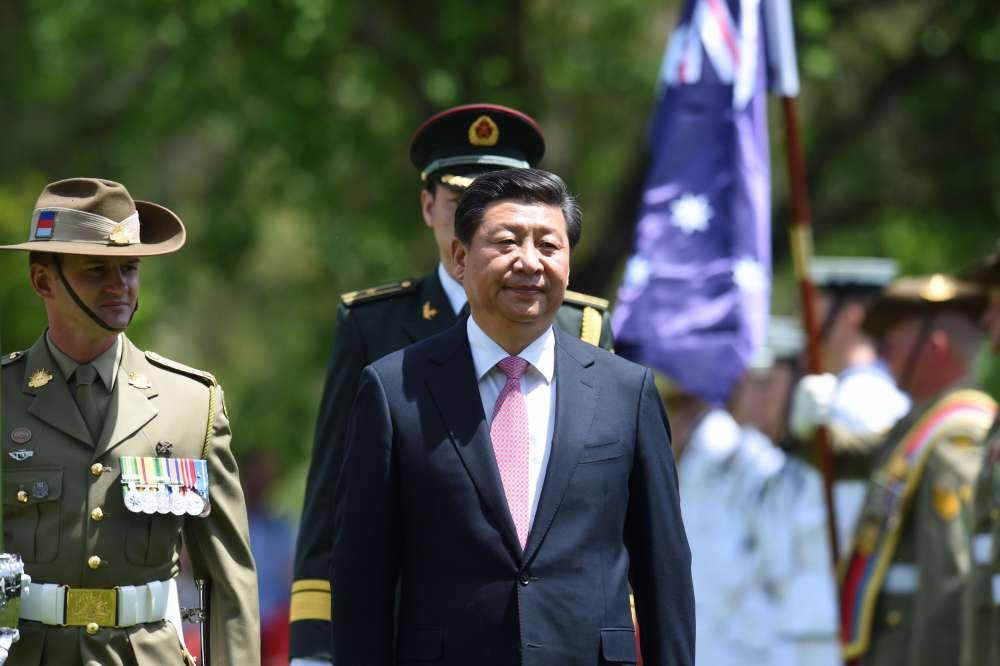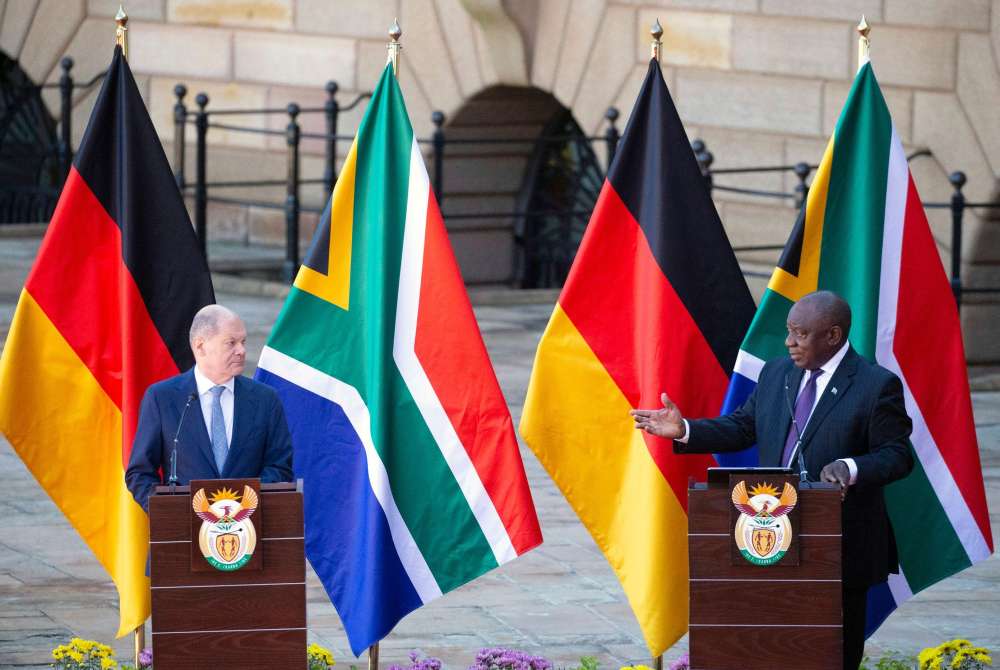Bringing the Indo-Pacific into Germany’s Security Strategy

Photo: Bundeswehr/Sascha Sent
Germany’s first-ever national security strategy represents an opportunity to re-examine how Germany sees the world – not just the developments in Europe, but also those in the Indo-Pacific.
To develop its new national security strategy, Berlin will undoubtedly focus inwards, drawing on domestic viewpoints, reaching out to the public and assessing the threats and challenges facing the country. At the same time, this process should not be too narrowly constructed. In order to be effective, the national security strategy will need to look beyond Europe’s borders.
Adopting a global perspective is crucial. For one, the strategy will not only be a tool for German policymakers, but also for its partners around the world: for them, the strategy document serves as an indication of the role Germany is able and willing to play in responding to global challenges. Secondly, the national security strategy will need to take a broad view of security, as Germany’s most pressing challenges are not limited by geography. Therefore, the strategy will have to consider newer threats like climate change, address issues of economic security, safeguard critical infrastructure, and build resilience. It will also have to address threats and challenges from different theatres beyond Europe. Here, the Indo-Pacific will be key.
Think Beyond the China Debate
Developments in Asia have traditionally attracted little attention in the German public discourse. And while the China debate may have accelerated and sharpened in recent years, the focus has remained primarily on economic security and reducing dependence. In September 2020, Germany issued official guidelines for the Indo-Pacific – however, the overall policy does not reflect the fact that the global center of gravity has shifted to the Indo-Pacific.
Home to some of the fastest growing economies, this region is vital for Europe: the Indo-Pacific is the second largest export destination for Germany and any disruption to its supply chains or maritime trade routes would directly impact jobs and livelihoods in Europe. For this reason alone, China’s military modernization and territorial adventurism in the Indo-Pacific should raise serious alarm bells. In addition, many of the Indo-Pacific’s security concerns are similar to – or definably linked with – those in Europe. With China’s expanding presence on the European continent, both regions now have similar debates around 5G networks, political and economic influence, resilient supply chains, and competition for new technologies. And the China-Russia “no-limits” partnership is a stark example of how the European and Indo-Pacific theaters are interconnected.
» Many of the Indo-Pacific’s security concerns are similar to – or definably linked with – those in Europe. «
Among other lessons, Russia’s invasion of Ukraine has demonstrated how quickly regional shocks can become global, impacting food security and sky rocketing fuel prices around the world. A security contingency in the Indo-Pacific will most certainly have a massive impact on both Germany and Europe. Taking a narrow approach to security by assuming that events in distant geographies will not affect German national security will be counterproductive. Both Germany’s national security strategy and its subsequent China strategy need to look beyond Germany’s immediate neighborhood and specify the lens through which not only China, but the broader Indo-Pacific will be viewed.
Shift Focus Toward the Indo-Pacific
The United Kingdom’s Integrated Review can serve as an example of how to focus on “core” areas like Europe and the transatlantic while simultaneously acknowledging the importance of developments and dynamics in the Indo-Pacific. The Integrated Review is clear about the threat Russia poses and underlines the need to focus on defence and deterrence in the Euro-Atlantic. At the same time, it outlines an economic and diplomatic shift toward the Indo-Pacific. Following this example, Berlin should use its national security strategy to articulate Germany and Europe’s stakes in maintaining stability in the Indo-Pacific region, name the countries that Germany considers its key partners in the region, and offer up an honest assessment of the instruments and capabilities it can bring to play.
One thing is already clear: In addition to its role as a top trade and investment partner, Germany is investing more of its diplomatic resources into the Indo-Pacific. Recent examples of this investment include the visit of the Bundeswehr’s frigate Bayern to the region and the German Air Force’s participation in the Pitch Black exercise. If Berlin acknowledges the importance of the Indo-Pacific and wants to continue investing resources in the region, it would be helpful to take a comprehensive look at what Germany’s Indo-Pacific engagement can achieve and how it can add to Berlin’s long-term national security and foreign policy goals. This necessitates a broader conversation that extends beyond the China debate and includes partners like Australia, South Korea, Japan, and India. This is also an opportunity to review Germany’s Indo-Pacific guidelines – the implementation of which remains piecemeal, even two years on.
Garima Mohan
Senior Fellow, Asia Program, German Marshall Fund
Keep on reading

Security through Preparedness: Lessons from Australia and the Indo-Pacific
For any country with strong stakes in a rules-based order, China’s recent aggressions in the Indo-Pacific should set off alarm bells. It’s time for new thinking about national preparedness – as Australia has learned in recent years.

No More Navel-Gazing: A Global Outlook on National Security
For Germany’s national security strategy to work, it cannot afford to separate its national and international interests. This mindset change will require Germany to rethink how it sees itself, its position in the global order and its outlook on the world itself.

Wanted: Klare Leitlinien für die zukünftige Sicherheitsordnung in Europa
Der russische Angriff auf die Ukraine hat gezeigt, dass es eine kooperative Sicherheitspolitik gegenüber Moskau nicht mehr geben kann. Die Sicherheitsstrategie muss neue Realitäten reflektieren – und die deutsche Gesellschaft auf die Kosten einstimmen.